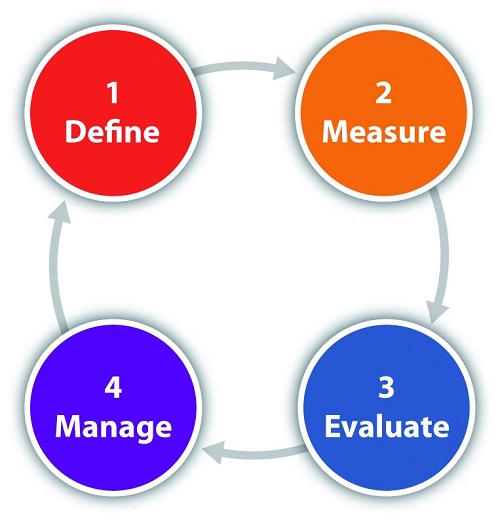Difference between Measurement and Evaluation
Measurement and evaluation are both means to monitor progress for individuals or groups in the work place or in the educational environment. The outcomes of the measurements and evaluations help determine potential and effective systems that may be put in place to ensure key performance in business and learning institutions. There are many similarities in these two methods but one simple difference sets them apart.
Measurement and evaluation are processes that are used to provide information about a person or object and their performance. Measurement and evaluation are used together to assist in the development of individuals or systems to improve performance or to modify the system to suit the needs of the individual, group or business operation. Bill Gates highlighted the need for measurement in business when he said:
“In business the idea of measuring what you are doing, picking the measurement that counts, like customer satisfaction and performance ….. You thrive on that.”
It is the measurement that he speaks of that assists the evaluation.
Measurement is all about the numbers and being able to quantify the performance or the abilities. Evaluation assists with using the data and information to judge success or failure. Evaluation can take place without numerical measurement as it measures performance.
Measurement requires some standardized tools for measuring. A speedometer measures the speed of the moving car and a thermometer measure the temperature of a give space. These tools help to measure and record physical attributes.
Evaluation is used to judge the value or worth of a plan or project. Evaluation can be used in conjunction with measurement to asses pupils or workers performance. Evaluation is a key element in pupil’s performance and helps measure progress of the individual. Evaluation can determine the needs of individual pupils so that a programme suited to their level of understanding can be implemented.
Measurement is about numbers and data and standardised tests. Evaluation benefits form the opportunity to use the data in order to compare and judge the success rate of a person or an object that may not necessarily be quantified. Paintings, novels and individual performance can all be evaluated by professionals in their field of expertise. The addition of measured data adds verification to the evaluation and provides accurate performance indicators as each measurement can be compared. Measurements are more objective as they have numerical standards to compare and record. Evaluation could be seen to be more subjective as the evaluator and measures used are part of human sciences and performance related.
Albert Einstein claimed that:
“Everything that can be counted does not necessarily count everything that counts cannot necessarily be counted.”
Therefore based on Einstein’s observation it would be true to say that measurement and evaluation go hand in hand in the assessment of the aspects of life that can and do count.
The educator, the businessman, the politician and the man in the street can all benefit from the outcomes of measurement and evaluation. They serve the same purpose but use different styles of observation to conclude outcomes and values.
- Difference Between Lagoon and Bay - October 20, 2021
- Difference Between Futurism and Preterism - August 12, 2021
- Difference Between Dichotomy and Paradox - August 7, 2021
Search DifferenceBetween.net :
1 Comment
Leave a Response
References :
[0]The difference between measurement and evaluation, www.cram.com/essay/pub.17June2015
[1]KiruthikaSL, measurement and evaluation, www.authorstream.com/presentation/ measurement and evaluation,2014
[2]"Image Credit: https://2012books.lardbucket.org/books/sustainable-business-cases/s08-02-sustainability-reporting-proce.html"


Well explained and i now understand the difference btn the two concepts and they can be applied. Though not sure abt thinking i am of the idea that a proficient teacher must take a course on this topic.